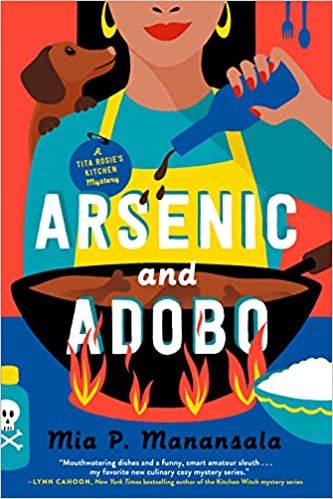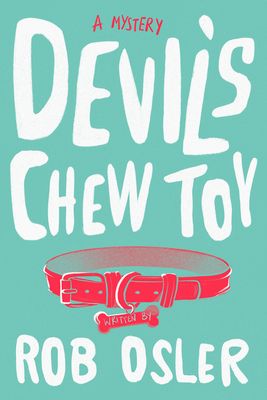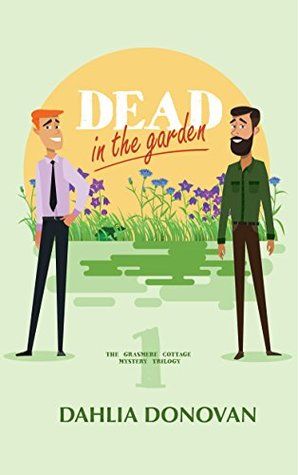Readers of cozy mysteries reach for this mystery subgenre when they want, as the title implies, a cozy read. That always means no graphic violence. For some it also means no sex or swearing. But in a genre that has three main rules (only one agreed upon by all), and a handful of mostly-followed-but-not-written-in-stone rules, it is long overdue that the genre branch off with an updated cozy mystery category in addition to the current one.
I’ve recently found myself either placing a “disclaimer” on a few mysteries that have been labeled cozy, or shown up in reviews and publishing blurbs with the term “Millennial Cozy Mystery.” For years I have read a ton of readers’ wants, likes, and dislikes for Tailored Book Recommendations — we literally recommend books based on surveys filled out by subscribers — and I see a lot of requests for cozy mysteries, giving me a good idea of why readers like them. The cozy mystery genre is a very specific subgenre of crime with rules, but it also has an element of “mood” that can have different parameters for readers. I’ve noticed that cozy readers, while having various reasons for reading the genre, all agree with the main rule: no graphic violence. But there is much room left over in the genre to explore the other aspects where readers would be happy to branch out and don’t necessarily need rules for no swearing or sex, sleuths can be in their 20s, and maybe it can be set in a city rather than a small town (like Hollywood Homicide which is set in L.A.).
Cozy Mysteries History
Before I get further into the expanding of the cozy mystery genre let’s take a little dive into the history. When we take the mystery genre as a whole most scholars point to the first detective fiction works to be credited to “The Murders in the Rue Morgue”, a story by Edgar Allan Poe, and Moonstone, a novel by Wilkie Collins. The most recognizable authors to this day are Arthur Conan Doyle and Agatha Christie — the latter labeled as a cozy mystery writer now, but the term did not exist during her time. We do not have any way to know if writing today she would be writing cozies, since the lack of violence, sex, and swearing had more to do with the time period.
The cozy mystery genre seems to have been created in the late 20th century as a response to the dark, gritty noir that followed the Golden Age of Detective Fiction. Basically, many readers wanted to go back to mystery books that did not have graphic violence, swearing, and sex, those three main rules of cozy mystery books. There are also implied, debatable rules like a small town setting, a “likable” older amateur sleuth woman as the lead, charming job (in a bookstore, bakery, apothecary), and a quirky group of friends or side characters. And publishing gatekeeping ensured that the genre stayed overwhelmingly white and straight, marginalized voices needed not exist.
“Millennial Cozy Mysteries”

Recently the term “Millennial Cozy Mysteries” started to pop up. Beginning in 2018, Berkley Books, an imprint of Penguin Random House, began thinking about how to develop new murder mystery series to “appeal to Millennials.” The leads are younger, 20-30 year olds, and the book settings don’t have to only be in a small town. Most importantly Berkley Books opened the gate to include marginalized main characters and authors. I reached out to Angela Kim, Assistant Editor, and asked if the new cozies were adhering to no sex or swearing along with the no graphic violence and heard back: “At Berkley, we are open to all kinds of mysteries and don’t adhere to set rules for them or have strict definitions of what our mysteries entail. We’re more focused on the stories themselves and how they reflect the world around us.”

Crooked Lane Books has also been publishing inclusive cozies including Devil’s Chew Toy by Rob Osler and Mango, Mambo, and Murder by Raquel V. Reyes. And pushing the cozy box is Magic, Lies, and Deadly Pies by Misha Popp which has a few curse words and an anti-hero lead — she literally murders men who inflict harm on woman via her pies (but there isn’t graphic violence). Publishers Weekly said in their review, “Cozy readers looking for something different will find much to like in this unusual culinary cozy.”
I reached out to Crooked Lane about their view on the cozy genre and Dulce Botello, Marketing Assistant, passed on from the editors: “Cozy mysteries are a remarkably evergreen category. While many fans have been devoted to them for years, we regularly see readers give cozies a try for the first time. Some are charmed by the characters. Others love the puzzle. Trying to spot the killer and learning that you’re right (or wrong!) is a big part of the fun. Plenty of those new readers are settling in for later installments in the series. Cozy fans have their favorite authors, and they love finding new favorites to add to their lists, and we look to bring them the voices that will entertain them for years to come.”
I love the initiative of bringing in new readers, especially with inclusive cozies, and have been reading all these new cozies that push the boundaries into a new category. I do however hope the new category will get a term to make it easier for readers to pickup. While the category comes from the idea of aiming for Millennials (younger audiences) I hope “Millennial Cozy” does not stick (as I’ve seen in some article headlines and reviews) as an actual category name, since I find it restrictive and not sustainable for the future as generations age and new ones are born. Not to mention all the people who hear “millennial” and are just big mad for no reason. I also know boomers and plenty of GenXers who are enjoying the new cozies, but are unaware of how to seek them out or what they’re called.
The Audience Is Already There
I opened a discussion on Book Riot’s Slack asking why Rioters read cozy mysteries, don’t read them (too much real world; too slow in pace; too hard to find the marginalized voices), and how they felt about the specific rules of violence, swearing, and sex. It was unanimous that no graphic violence is a must as it’s the main reason they pick up cozy mysteries.
“I read them for similar reasons to why I read romance. I like that there’s a guaranteed happy ending. And I’m sensitive to graphic violence so I like that there isn’t any in cozies.” CJ Connor told me. Beyond the “no graphic violence” rule the audience for cozy mysteries seems to fracture first into two categories: the readers who pick up a cozy for the guarantee of no graphic violence, swearing, and sex; the readers who want the guarantee of no graphic violence but have no issues with sex or swearing.
If the unanimous consensus is that cozies should be low in violence (not graphic on the page) and lighthearted in tone, it makes sense for that to be the umbrella that then carries two subgenres: on one side catering to the strict no sex/swearing, and on the other side to those who are happy to have a twenty year old sleuth drop a creative F-bomb. There is room for both.

The romance genre has closed-door romances and open-door romances — with the heat levels hitting all the ranges. So why not cozy mysteries too? The Rioters who joined in the conversation unanimously responded that so long as the cozy mystery didn’t contain graphic violence and were cozy in mood they were fine all the way to delighted for it to contain swearing and/or sex.
“I would 100% read more cozies if they had 100% more queer sex. (I often look at cozies longingly wishing they were 85% mystery and 15% romance and 100% queer)” Laura Sackton told me.
Cassie Gutman noted “Sometimes topics are too heavy and dark — the sex and the swearing don’t change whether the crime itself is violent or descriptive, which is why I 1.) need a cozy every now and then and 2.) don’t mind them bending the rules, as long as the super dark violent crime part is not there.”
Megan Mabee followed up with “Yes exactly! Choosing between a cozy or a standard mystery thriller just depends on my mood and what I feel like I can handle emotionally at the time I’m deciding what to read, and this definitely has more to do with violence than sex and swearing”.
If you’re looking for inclusive cozy mysteries, younger sleuths, and/or don’t have a rule against possible swearing and/or sex, you’ve got at least two publishers now putting out some new reads for you. Some have just started their series and others are at least a handful of books in to the series so you can definitely make yourself a little book fort of comfort reads. And hopefully this is just the start, they’ll be easy to seek out, and have a category term that catches on (Next Gen Cozy? Cozy 2.0? Mozies? Someone surely has a brilliant idea for a category name!).









